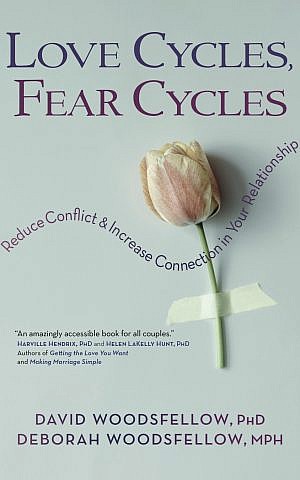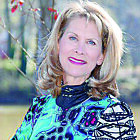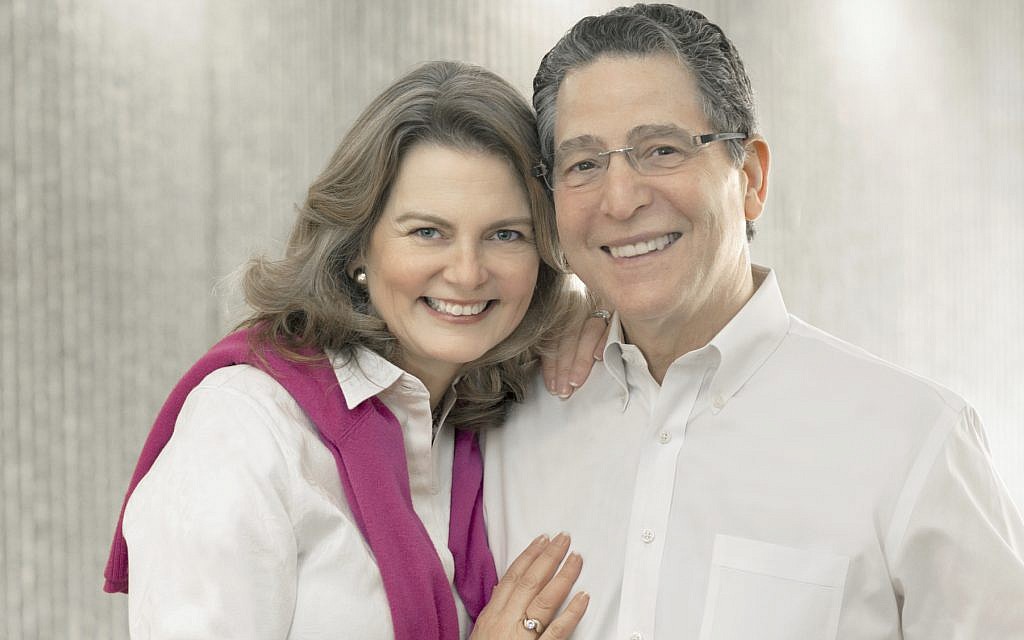Guide to Love and Fear
Husband-wife marriage counselors, Deborah and David Woodsfellow, wrote a guide to help couples.
Husband-wife marriage counselors, Deborah and David Woodsfellow, wrote a guide to helping couples understand what goes right in relationships – and what goes wrong.

As founders of the Woodsfellow Institute for Couples, the Woodsfellows bring 25 years of marriage counseling to bear in their new book, “Love Cycles, Fear Cycles.”
Through their counseling they have learned that almost all couples have two cycles: a love cycle and a fear cycle. “Understanding your respective vulnerabilities and reactions can help you stay out of your fear cycle and spend more time in your love cycle, …the key to enjoying life together,” said David Woodsfellow.
Get The AJT Newsletter by email and never miss our top stories Free Sign Up
Hear what the Woodsfellows have to say about marriage, with a Jewish touch.
Jaffe: Summarize the crux of the book.
David: Conflict and connection are opposite cycles. We want couples to understand their vulnerabilities, so they don’t go around and round in negative cycles. We help them gain awareness and insight to pull out of negative cycles when they begin. Example: One partner demands and the other withdraws. In their negative cycle, demand leads to withdrawal, and withdrawal leads to more demand.
Deborah: Another example would be if one is too narcissistic; the other feels unimportant and can lose their identity. That could lead to more narcissism, which in turn could lead to more loss of identity. This could be a big disconnection.
Jaffe: Do you have any observations unique to Jewish couples?
David: Family really matters and is very important to Jewish couples. They are passionately concerned about their connection to their children.
With the high holidays coming up, it’s a wonderful time to pay attention to your partner’s gripes. Make this front and center as you work on atonement. For instance, if your partner says that you are too intense, then you probably are.
Jaffe: One of your specialties is affair recovery. What can we learn about that?
David: That’s a tricky one. There are good chances of recovering from an affair if the partner is willing to end it, talk about it and honestly express their regret.
Deborah: After that, the couple has to assess what they want to change in their relationship. Most people will be married two to three times. The question is whether it will be to the same person.
Jaffe: À la the Masters and Johnson team, is the book’s research based on your own observations or scientific data?
David: Both. It’s based on our 25 years of marriage counseling and the research data from Dr. John Gottman. We have also synthesized ideas from several different master trainers like Dr. Harville Hendrix. Our book is now used to train other therapists. It took us five years to write and re-write this book.
Deborah: We had a lot of revisions as we gained perspective over the years. I would estimate that we have saved 1,500+ marriages.
Jaffe: How would you define a successful marriage?
David: Stable, intimate, good teamwork, good friends, and sense of purpose.
Deborah: Happy couples spend a lot more time in the love cycle than they do in the fear cycle.
David: Yes, I’d say five times as much time.
Jaffe: What happens when you counsel unmarried couples about their future?
David: Most couples are happier when they can change their fear cycle. We advise those dating that nothing and no one is perfect. Everybody has problems. Even when you are with your beshert, they still won’t be perfect. Your deepest fears will be touched. … That’s part of what bashert means. It’s the part of you that needs to heal.





comments